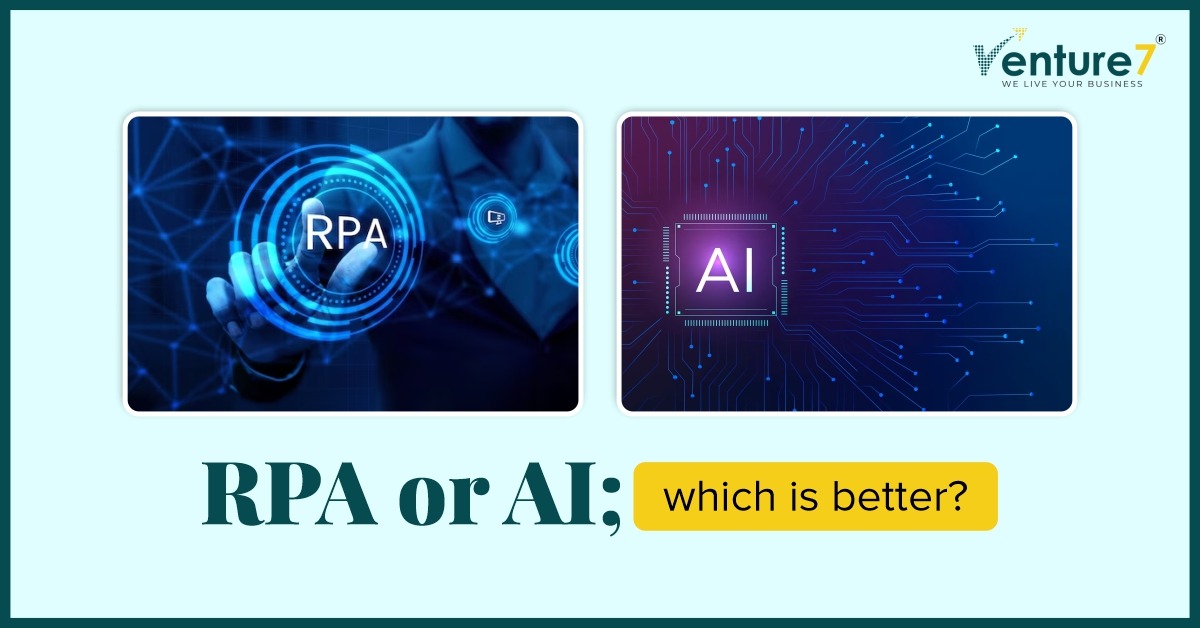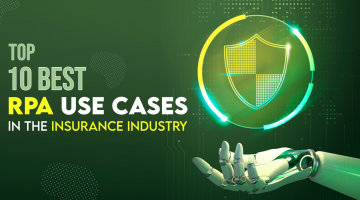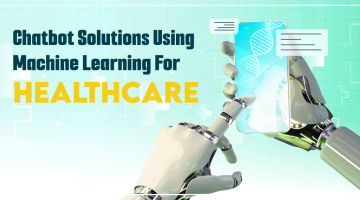RPA or AI, Which is better?
Considering the question of whether RPA or AI which is better, it’s important to understand that while both technologies involve automating tasks, they have different approaches and purposes. AI involves creating intelligent machines capable of emulating human reasoning, learning, and problem-solving. This entails employing intricate algorithms and data analysis to enable machines to learn from data and subsequently make informed decisions. AI has applications such as natural language processing, image recognition, and predictive analytics. Robotic Process Automation is like having a digital assistant at work. It uses special software robots to do tasks just like a human would. You tell these robots what to do by giving them a set of rules. They can process data, handle transactions, talk to other computer systems, and more, following your rules. The answer is situational. I mean, it depends on the situation. AI and RPA have unique benefits and limitations. Let’s examine the situations where RPA is more effective than AI. The Benefits of AI over RPA The advantages of each highlight specific attributes that one possesses while the other lacks. These attributes are like: AI is capable of handling complex tasks that require reasoning and decision-making. Some examples of such tasks include recognizing patterns, making predictions, and processing natural language. On the other hand, RPA focuses primarily on automating routine and repetitive tasks that are rule-based. Some common examples of these tasks include data entry, form filling, and invoice processing. AI utilizes large datasets and advanced algorithms to make intelligent decisions, while RPA leverages software robots to copy human actions, such as clicking buttons and entering data into fields. AI has the ability to analyze data and feedback without manual intervention, which enables it to learn and improve over time. RPA is designed to follow predetermined rules and decision trees and cannot improve on its own. Artificial Intelligence vs RPA Comparative Market Share Global market research indicates that the AI market value was USD 62.35 billion in 2020 and is projected to grow to USD 733.7 billion by 2027, with a CAGR of 40.2% during the forecast period. During the forecast period, the RPA market is expected to grow at a CAGR of 22.3%, reaching USD 7.46 billion by 2026 from USD 1.63 billion in 2018. Although the AI market is growing faster, both RPA and AI are expected to play a significant role in digital transformation and automation across industries. Artificial Intelligence vs RPA Software List When organizations are developing their automation strategy, it is important to understand that choosing between RPA and AI is not an either/or decision. You will need to apply RPA to some parts of the business and AI to other parts of the business. In recent years, organizations have gradually invested in various automation technologies, often with narrow and tactical goals, aiming for swift returns on investment. Many opted for quick-fix solutions that addressed immediate needs. However, without a cohesive strategy to orchestrate a comprehensive approach, organizations inadvertently developed isolated pockets of automation. These isolated pockets have resulted in increasingly complex automation issues, affecting both employee and customer experiences, particularly as organizations seek to expand their automation efforts. Nonetheless, process automation remains vital for organizations looking to remain competitive and successful. That’s why you require a comprehensive end-to-end process automation strategy to harness its potential fully. To be successful in your automation efforts, you need to apply the right tool to the right job. 
Now the question is RPA or AI, which is better?
AI Software RPA Software OpenCV Blue Prism H20.ai NICE IBM Watson Kofax TensorFlow UiPath PyTorch Keras Blue Prism Caffe WorkFusion Microsoft Cognitive Toolkit (CNTK) Pega EdgeVerve RPA, AI, and your Automation Strategy
Browse by categories
- Agile
- Artificial Intelligence
- Automated testing
- Big Data
- Blockchain
- Business Intelligence
- Chatbots
- Cloud Computing
- Customer Experience
- Data Science
- Design Thinking
- DevOps
- Dialogflow
- Digital transformation
- EduTech
- ETL
- Healthcare
- HealthTech
- Machine Learning
- Mobile application
- Product Development
- Quality Ascent
- Quality Assurance
- Real Estate
- Software Testing
- StartUp
- Testing
You May Like This

The top 5 cybersecurity and compliance trends
Revamping supply chains was the biggest challenge for businesses during the pandemic with remote-hybrid working models becoming the norm. While they came up with greater digital transformation and tools to enhance productivity, they also faced new challenges for cybersecurity and compliance. While cultural and technological norms changed and business continuity measures were in place, it […]

Top 10 RPA use cases in the Insurance industry
The workflows in the Insurance industry are such that a large part of the workforce is heavily burdened with manual, mundane tasks. Manpower resources, that could have been utilized for more value-added tasks are allocated to plain and repetitive work. This impacts the organization’s efficiency as more critical tasks that require the intellectual faculties of […]

Wearable Technology: Past, Present and Future
The Healthtech sector has grown exponentially in the past few years. Among various new devices and tools that have been built, wearable technology has been the most impactful for healthcare. There has been a steady rise in digital wellness wearable devices that are designed to collect data in real-time, providing information on wellness parameters of […]

Chatbot Solutions using Machine Learning for Healthcare
Chatbots are programs that employ machine learning algorithms, such as natural language processing (NLP), to stimulate and engage in conversations with users to provide real-time patient assistance. Chatbots are already popular in retail, news, social media, banking, and customer service. Many individuals use chatbots on their cell phones without even realizing it. The healthcare sector, […]

How to use ChatGPT in your PM work?
LinkedIn has been a buzz with accolades for the generative AI tool since December, but the question remains: is it worth the price tag, particularly for Product Managers? To find out, we extensively tested ChatGPT across various PM scenarios. It can bring significant transformative effects as a PM assistant. We intend to help you with […]

How Advanced Analytics Is Changing The Dynamics Of B2B Industry?
The B2B industry is exploding with innovations that may help businesses alter their operations and take the lead. The B2B companies are focusing on providing new elements to customers and also dig out new sources of revenue. To achieve these targets, the industries are shifting towards the use of data and analytics to add diverse […]



